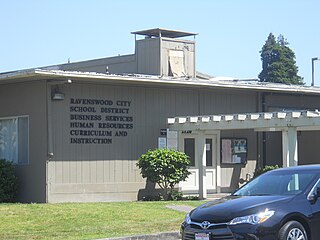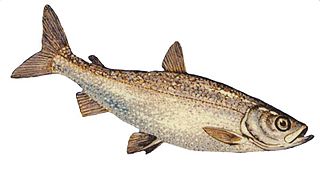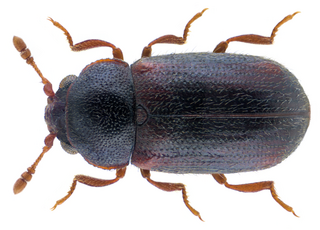
An embryo is the initial stage of development for a multicellular organism. In organisms that reproduce sexually, embryonic development is the part of the life cycle that begins just after fertilization of the female egg cell by the male sperm cell. The resulting fusion of these two cells produces a single-celled zygote that undergoes many cell divisions that produce cells known as blastomeres. The blastomeres are arranged as a solid ball that when reaching a certain size, called a morula, takes in fluid to create a cavity called a blastocoel. The structure is then termed a blastula, or a blastocyst in mammals.

Herring are forage fish, mostly belonging to the family of Clupeidae.

Convolvulaceae, commonly called the bindweeds or morning glories, is a family of about 60 genera and more than 1,650 species. These species are primarily herbaceous vines, but also include trees, shrubs and herbs. The tubers of several species are edible, the best known of which is the sweet potato.

Jasmine is a genus of shrubs and vines in the olive family of Oleaceae. It contains around 200 species native to tropical and warm temperate regions of Eurasia, Africa, and Oceania. Jasmines are widely cultivated for the characteristic fragrance of their flowers. Additionally a number of unrelated species of plants or flowers contain the word "jasmine" in their common names.

The Integrated Taxonomic Information System (ITIS) is an American partnership of federal agencies designed to provide consistent and reliable information on the taxonomy of biological species. ITIS was originally formed in 1996 as an interagency group within the US federal government, involving several US federal agencies, and has now become an international body, with Canadian and Mexican government agencies participating. The database draws from a large community of taxonomic experts. Primary content staff are housed at the Smithsonian National Museum of Natural History and IT services are provided by a US Geological Survey facility in Denver. The primary focus of ITIS is North American species, but many biological groups exist worldwide and ITIS collaborates with other agencies to increase its global coverage.

Wildlife conservation refers to the practice of protecting wild species and their habitats in order to maintain healthy wildlife species or populations and to restore, protect or enhance natural ecosystems. Major threats to wildlife include habitat destruction, degradation, fragmentation, overexploitation, poaching, pollution, climate change, and the illegal wildlife trade. The IUCN estimates that 42,100 species of the ones assessed are at risk for extinction. Expanding to all existing species, a 2019 UN report on biodiversity put this estimate even higher at a million species. It is also being acknowledged that an increasing number of ecosystems on Earth containing endangered species are disappearing. To address these issues, there have been both national and international governmental efforts to preserve Earth's wildlife. Prominent conservation agreements include the 1973 Convention on International Trade in Endangered Species of Wild Fauna and Flora (CITES) and the 1992 Convention on Biological Diversity (CBD). There are also numerous nongovernmental organizations (NGO's) dedicated to conservation such as the Nature Conservancy, World Wildlife Fund, and Conservation International.

The Ravenswood City School District is a public school district headquartered in East Palo Alto, California, US. The district, in the San Francisco Bay Area, serves the communities of East Palo Alto and eastern Menlo Park. Students from this school district who continue on with public schooling matriculate to the Sequoia Union High School District.

Heteroconchia is a taxonomic infraclass of diverse bivalve molluscs, belonging to the subclass Autobranchia.

The freshwater whitefish are fishes of the subfamily Coregoninae, which contains whitefishes and ciscoes, and is one of three subfamilies in the salmon family Salmonidae. Apart from the subfamily Coregoninae, the family Salmonidae includes the salmon, trout, and char species of the subfamily Salmoninae, and grayling species of the subfamily Thymallinae. Freshwater whitefish are distributed mainly in relatively cool waters throughout the northern parts of the Northern Hemisphere.

The tropical small-eared shrew is a very small mammal of the family Soricidae. The species is found in the eastern highlands of the Mexican state of Chiapas and parts of Belize and Guatemala. Until recently, it was considered a subspecies of the North American least shrew, but it has gained species status. Its relationship with the Central American least shrew remains to be studied.

Pemphredonidae is a family of aphid wasps formerly treated as the subfamily Pemphredoninae. There are 19 genera and 556 described species in the family.

Sphindidae is a family of beetles, in the suborder Polyphaga. They are called slime mold beetles due to their exclusive feeding on slime molds during adult and larval stages, other aspects of their life history are obscure. Palaeontological discoveries since 2015 have added to the geologic history of Sphindidae, including the discovery of Libanopsis, placed in the extinct subfamily Libanopsinae.

iNaturalist is an American 501(c)(3) nonprofit social network of naturalists, citizen scientists, and biologists built on the concept of mapping and sharing observations of biodiversity across the globe. iNaturalist may be accessed via its website or from its mobile applications. iNaturalist includes an automated species identification tool, and users further assist each other in identifying organisms from photographs and even sound recordings. As of 9 July 2024, iNaturalist users had contributed approximately 197,660,888 observations of plants, animals, fungi, and other organisms worldwide, and 290,007 users were active in the previous 30 days.

Miroidea is a superfamily of true bugs in the order Hemiptera. There are about 7 families and more than 15,000 described species in Miroidea.

Psyllipsocidae is a family of cave barklice in the order Psocodea. There are about 7 genera and more than 70 described species in Psyllipsocidae.
Psoquillidae is a family of bird nest barklice in the order Psocodea. There are about 8 genera and more than 30 described species in Psoquillidae.

Trogiidae is a family of granary booklice in the order Psocodea. There are about 11 genera and more than 50 described species in Trogiidae.

Ammoplanidae is a family of aphid wasps formerly treated as the Crabronidae subtribe Ammoplanina. There are about 10 genera and at least 130 described species in Ammoplanina. Phylogenetic analyses in 2018 and 2021 have confirmed this group as the sister lineage to the bees, and thus accorded the group family rank.
Animal Ethics is a nonprofit organization formed to promote discussion and debate around issues in animal ethics and to provide information and resources for animal advocates. They also do outreach work in several countries on the issue of speciesism. Their aim is to create a world where moral consideration is extended to all sentient beings. The organization's website covers topics such as speciesism, sentience, veganism and wild animal suffering and has content translated into several languages.
















